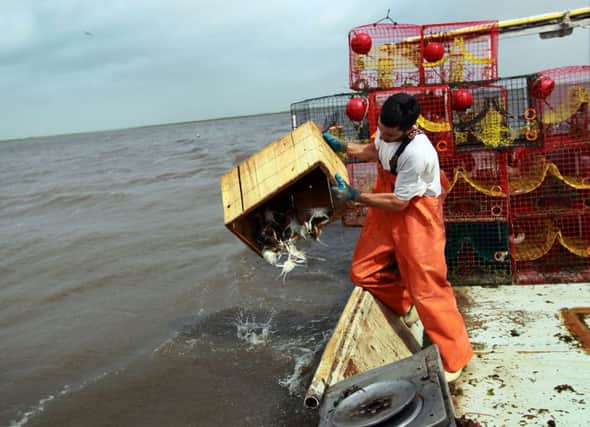Brussels throws away common sense on fishing


Shetland is not the sort of place that you would think is at the centre of anything, apart from all that sea. Only 400 miles from the Arctic Circle, closer to the Faroe Islands and Norway than Aberdeen, let alone Edinburgh, the 23,000 islanders are about as far from the spotlight as you can get. That may be about to change, however.
Like other fishing-dependent communities in Scotland, Shetland is on a direct collision course with Brussels. It is astonishing that we ever got to this point, forced into a fight for survival against a deadly combination of grim zealots in the European Commission and bungling legislators in the European Parliament.
Advertisement
Hide AdAdvertisement
Hide AdBut combine they have, and starting next year the EU will be attempting to impose unworkable rules that could have been designed expressly to wipe perfectly sustainable, successful communities like Shetland off the map.
Once upon a time, UK and Scottish ministers would have stood up to condemn nonsensical bits of paper, drafted and voted by people who had no business doing either. All they can do now is wring their hands and tell us that they can do nothing. This is what the fuss over the discards ban is all about.
Under the EU’s hopelessly old-fashioned management system, fishermen have been forced for 30 years or more to throw sound, marketable fish back into the sea, alive or dead. Forced because of a lack of quota, or a market for particular species, or because EU rules expressly prohibit bringing certain fish ashore.
Nobody is more sickened by this waste than the men risking life and limb in some of the most hostile seas on Earth. There are still clowns out there who think that fishermen like nothing better than to set out into the North Atlantic in winter weather in order to catch fish and throw it away again.
Long before the political pressure started mounting for a ban on discards at sea, fishermen themselves were experimenting with different types of fishing gear to minimise unwanted catches. They were also demanding quotas that accurately reflected what was in the fishing grounds, rather than out-of-date numbers from career administrators.
So when the EU decided to act, hopes were high that there would be fundamental change to the fisheries management system that forced discarding in the first place.
Not a bit of it. The fishing industry simply got a clumsy, one-size-fits-all ban, on top of an essentially unchanged EU management regime. It was sloppy politics, rushed through under pressure from the green lobby and approved by MEPs from landlocked constituencies. It was like tackling air pollution by ramming corks into car exhaust pipes, rather than redesigning engines. Ironically, the new rules on discards are especially unsuited to fishing operations in Scottish waters, with expanding and diverse fish stocks. Indeed, this is the worst combination possible.
Expanding stocks are a problem because quotas lag behind what is out there to catch, and a healthy mix of fish species is a problem because there are limits to how far you can ensure only the “right” fish swim into your net.
Advertisement
Hide AdAdvertisement
Hide AdNeither issue is tackled in the reformed Common Fisheries Policy, and no remedy is offered in the place of discards. Apart from discarding on land, of course – the Eurocrats have no problem with unwanted fish being dumped in landfill. In the meantime, fishermen will have to stop fishing as soon as their smallest quotas are exhausted – and file for bankruptcy.
Never mind the massive decommissioning schemes, which slashed the size of our fishing fleets a decade ago and paved the way for spectacular recoveries in key fish stocks, such as cod, haddock and plaice.
Never mind that Shetland lands more fish than England, Wales and Northern Ireland combined, or that it was the only major UK port to post an increase in fish landings in 2013.
Never mind that Shetlanders have run commercial fishing operations in their waters for a thousand years, and have every interest in long-term sustainability. And never mind that nearly all our fishing vessels are locally-owned and crewed, many in family businesses dating back generations.
A daft piece of legislation is about to negate all that, despite the fact that the EU already imports 60 per cent of its fish.
The fight is about Europe’s failure to contemplate a workable fisheries management system that can avoid discards while guaranteeing the future of some of its most successful communities. These things are by no means impossible – Norway does it, for example. But Europe is bent on its own doctrinaire path, uninterested in listening to those who know and completely unconcerned about the social consequences of its actions.
Stopping something stupid and thinking again is apparently not an option, either for the Commission or the spineless ministers who went along with it. But then Brussels is not very good at dealing with real resolve – or with communities like ours, with nothing to lose.
• Simon Collins is executive officer, Shetland Fishermen’s Association www.shetlandfishermen.com